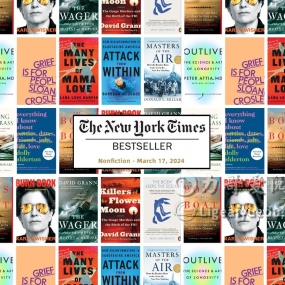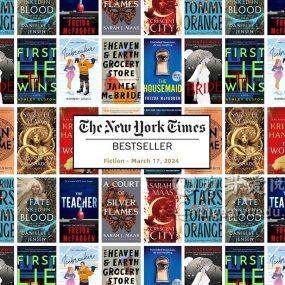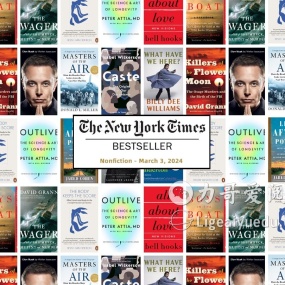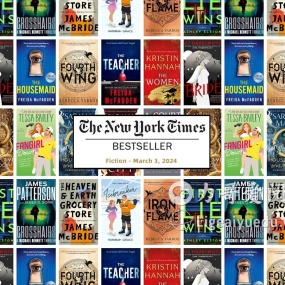
这本书从7个角度探讨了选择背后的影响因素,并指导我们做出改变,从而在生活中做出更好的决策,或者影响他人的选择。
这本书从7个角度探讨了选择背后的影响因素,帮助读者理解选择这门艺术,从而做出更好的选择。
Every day we make choices. Coke or Pepsi? Save or spend? Stay or go?
Whether mundane or life-altering, these choices define us and shape our lives. Sheena Iyengar asks the difficult questions about how and why we choose: Is the desire for choice innate or bound by culture? Why do we sometimes choose against our best interests? How much control do we really have over what we choose? Sheena Iyengar’s award-winning research reveals that the answers are surprising and profound. In our world of shifting political and cultural forces, technological revolution, and interconnected commerce, our decisions have far-reaching consequences. Use THE ART OF CHOOSING as your companion and guide for the many challenges ahead.
为什么我们的行为总要和我们的理性过不去?为什么我们总难控制自己的行为?
我们生活在知识丰富的信息时代,但我们体内却依旧保留着大量远古人类遗传下来的基因。我们其实是生活在现代都市的“洞穴男”或者“洞穴女”,还受着来自动物的原始的诱惑:贪婪、喜欢冒险、不忠或者好斗。
这绝不是对我们现代人理智的诬蔑,而是一种关怀。《本能:为什么我们管不住自己?》是透视我们现代人身上弱点的一面透镜,通过这面透镜,我们能够更精确地观察我们所处的世界,以便在人类的本能控制我们之前先下手为强。这样,我们就会生活得更心满意足。
Why do we want-and do-so many things that are bad for us? In Mean Genes Terry Burnham and Jay Phelan argue that we need to stop looking to Sigmund Freud for answers and start looking to Charles Darwin. Mean Genes reveals that our struggles for self-improvement are, in fact, battles against our own genes – genes that helped our distant ancestors flourish, but are selfish and out of place in the modern world. Using this evolutionary lens, Mean Genes brilliantly examines the issues that most affect our lives-body image, money, addiction, violence, and relationships, friendship, love, and fidelity-and offers steps to help us lead more satisfying lives.
“正确”会让人心情愉快,但人类无法一直保持正确。错误会让人感觉泄气、尴尬,带来焦虑,这种感受反映了我们非常迫切地想要“正确”。因此不管犯了什么错,我们要么死不认错,要么厚着脸皮辩解,要么把错误推到别人身上。正确面对失误,是我们处理与自我的关系、邻里关系、同事关系、朋友关系和家庭关系的基础。
这是一本集认知科学、行为经济学及商业心理学于一身的作品,它解决了人类关于犯错的三个终极问题:为何人类无法克服犯错带来的负面情绪;我们容易在什么时候犯哪几类错误;如何创造性地看待错误,把经验积累转化为合理行为。
In the tradition of The Wisdom of Crowds and Predictably Irrational comes Being Wrong, an illuminating exploration of what it means to be in error and why homo sapiens tend to tacitly assume (or loudly insist) that they are right about almost everything. Kathryn Schulz, editor of Grist magazine, argues that error is the fundamental human condition and should be celebrated as such. Guiding the reader through the history and psychology of error, from Socrates to Alan Greenspan, Being Wrong will change the way you perceive screw-ups, both of the mammoth and daily variety, forever.
我们的生活总是与一种奇怪的错觉相随:我们的眼睛常常不可思议地欺骗自己,我们曾有的刻骨回忆常被自我意识纠正,我们总是自命不凡,即便今天的股票挣了一笔,也认为自己只是小试身手而已。
在这本人类行为学的经典之作中,普利策新闻奖得主约瑟夫·哈里南向我们展示了人类的一些有趣行为——我们怎样思考,怎样看,怎样记忆,怎样忘怀,是什么东西引诱我们的人生抉择变得非理性。
为了展示我们的真正生活,哈里南制作了一道行为学的大餐:有心理学和神经学做调料,有经济学和消费者行为学做陪衬,有地理学和航空知识做谈资,有橄榄球赛事和股票投资做饭后消遣。
如果你希望自己的生活不被无心的失误跟随,就看看哈里南在这本书里是怎样细心地帮你找到那些错误,并且告诉你怎样更正它,让你的生活更加完美,而不让美玉般纯洁的日子留下瑕疵。
We human beings have design flaws. Our eyes play tricks on us; our stories change in the retelling; and most of us are fairly sure we’re way above average. In Why We Make Mistakes, journalist Joseph T. Hallinan sets out to explore the captivating science of human error—how we think, see, remember, and forget, and how this sets us up for wholly irresistible mistakes.








